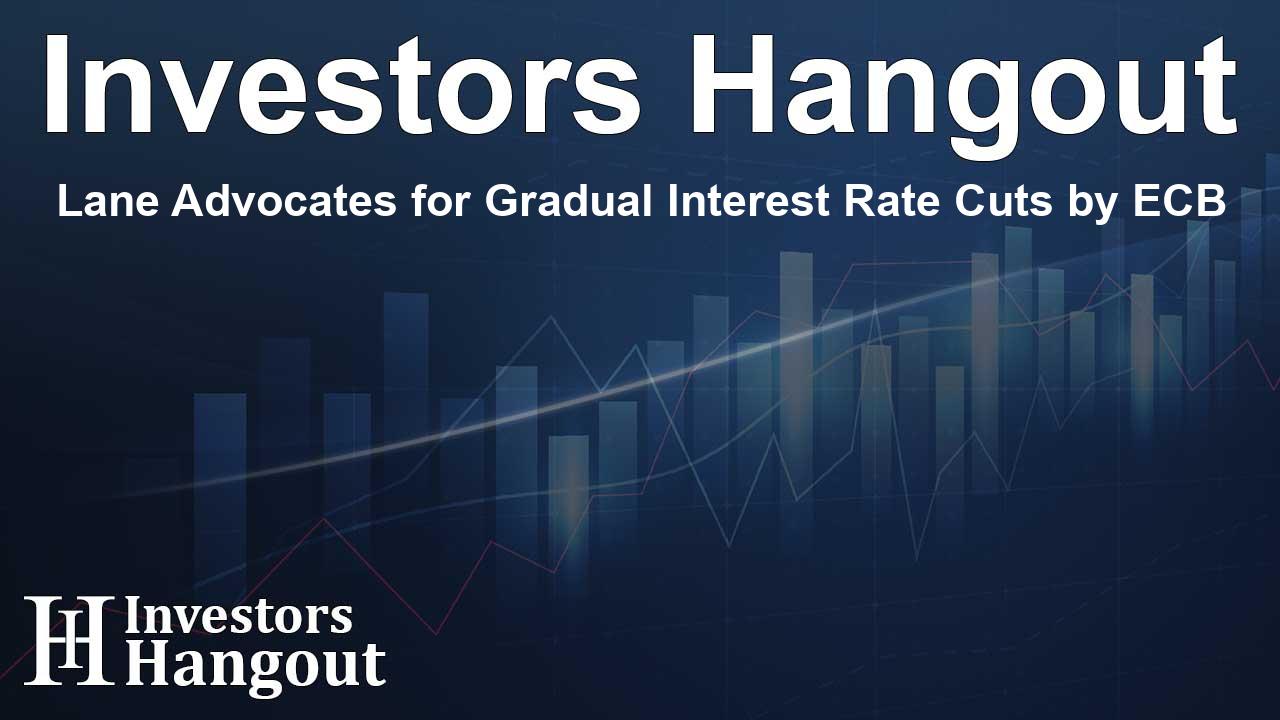Lane Advocates for Gradual Interest Rate Cuts by ECB

Lane Advocates for Gradual Interest Rate Cuts by ECB
The European Central Bank (ECB) continues to navigate the complexities of economic policy, and its chief economist, Philip Lane, recently shared insights on the organization's approach to interest rates. In a recent speech, Lane expressed the notion that the ECB should pursue gradual cuts to interest rates. However, he emphasized that a fixed schedule for these rate adjustments is not necessary, as economic conditions can fluctuate unpredictably.
A Gradual Approach is Recommended
Lane articulated the importance of a gradual strategy in reducing restrictiveness, especially if the forthcoming economic data aligns with the ECB's baseline projections. "A gradual approach to dialing back restrictiveness will be appropriate if the incoming data are in line with the baseline projection," Lane stated. This perspective highlights the ECB's commitment to a careful and measured response to adjusting monetary policy.
Flexibility is Key to Policy Adjustments
One of the primary themes from Lane's commentary is the necessity for the ECB to maintain flexibility in its policy actions. He noted that the bank needs to keep its options open regarding the pace of any interest rate adjustments. This flexibility allows the ECB to respond effectively to changing economic conditions.
Possibility of Accelerated Cuts
Lane also identified a scenario in which the ECB may need to accelerate its cuts to interest rates. This could occur if economic performance falters or if disinflation occurs at a faster rate than projected. The ability to react swiftly to such situations is crucial for achieving economic stability.
Slower Adjustments if Conditions Change
Conversely, Lane acknowledged the potential need for a more cautious approach if unexpected positive developments arise. In this case, the ECB might have to slow down the rate cuts to ensure that monetary policy remains appropriately balanced within the evolving economic landscape.
Conclusion on ECB's Future Path
The remarks made by Philip Lane underscore the ongoing challenges faced by the European Central Bank as it seeks to navigate a complex and ever-changing economic environment. By advocating for gradual interest rate cuts accompanied by flexibility, Lane presents a thoughtful strategy aimed at maintaining economic stability while being prepared for potential shifts in the financial landscape.
Frequently Asked Questions
What is the ECB's position on interest rates?
The ECB advocates for gradual cuts to interest rates while remaining flexible to adapt to changing economic conditions.
Why is a gradual approach important?
A gradual approach allows the ECB to adjust monetary policy based on incoming economic data, reducing potential shocks to the economy.
What factors might prompt the ECB to accelerate rate cuts?
Conditions such as economic downturns or faster-than-expected disinflation could necessitate quicker rate cuts by the ECB.
How does flexibility play a role in the ECB's strategy?
Flexibility allows the ECB to modify its approach in real-time, ensuring responsiveness to unforeseen economic changes.
What implications do Lane's comments have for the market?
Lane's insights may influence market expectations regarding the pace and nature of future interest rate adjustments by the ECB.
About Investors Hangout
Investors Hangout is a leading online stock forum for financial discussion and learning, offering a wide range of free tools and resources. It draws in traders of all levels, who exchange market knowledge, investigate trading tactics, and keep an eye on industry developments in real time. Featuring financial articles, stock message boards, quotes, charts, company profiles, and live news updates. Through cooperative learning and a wealth of informational resources, it helps users from novices creating their first portfolios to experts honing their techniques. Join Investors Hangout today: https://investorshangout.com/
Disclaimer: The content of this article is solely for general informational purposes only; it does not represent legal, financial, or investment advice. Investors Hangout does not offer financial advice; the author is not a licensed financial advisor. Consult a qualified advisor before making any financial or investment decisions based on this article. The author's interpretation of publicly available data shapes the opinions presented here; as a result, they should not be taken as advice to purchase, sell, or hold any securities mentioned or any other investments. The author does not guarantee the accuracy, completeness, or timeliness of any material, providing it "as is." Information and market conditions may change; past performance is not indicative of future outcomes. If any of the material offered here is inaccurate, please contact us for corrections.